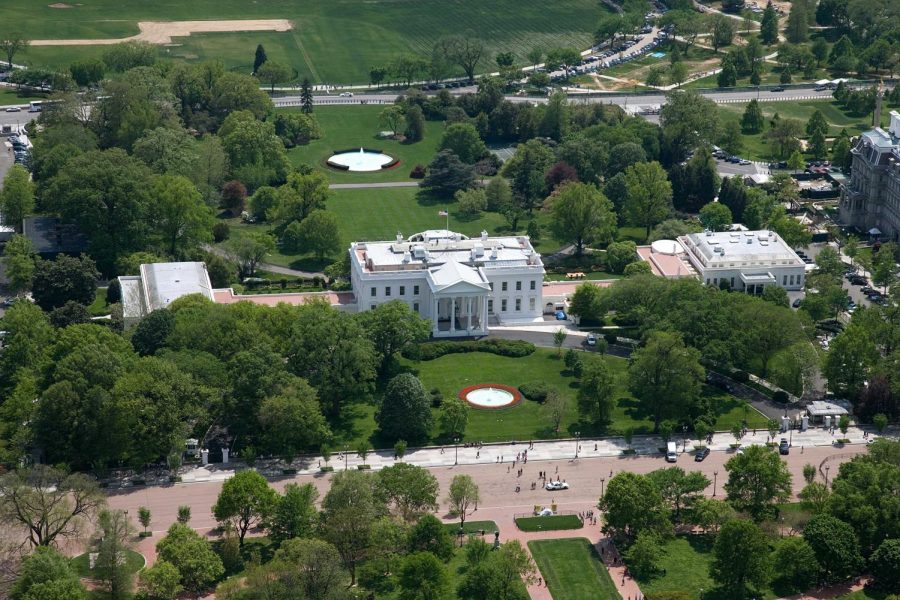Higher news media literacy, lower chance of conspiracy thinking
Photo Courtesy of Carol M. Highsmith
Aerial photo of the White House
Dec 13, 2017
Researchers from the University of Illinois, Boise State University and Indiana University Southeast created a system of measurement that can tell the likelihood of if someone will endorse a political conspiracy theory.
Stephanie Craft, associate professor of journalism, said the group initially received a grant from the McCormick Institute in Chicago to begin development research.
“When we started, the initial work was to see if we could develop a way to measure news literacy,” Craft said.
Craft explained their goal was to create a form of measurement that could capture everything involved in news literacy, but make sure it is valid. Much work was put into validating their conceived scale measuring someone’s level of news literacy.
Adam Maksl, assistant professor of journalism at Indiana University Southeast, defines news media literacy as a constellation of knowledge about aspects of media as well as aspects of motivation and the control media has over a person.
Get The Daily Illini in your inbox!
“Because there’s an element of misunderstanding or uncertainty, conspiracy theories can connect the dots even though there aren’t dots to necessarily be connected,” Maksl said.
Seth Ashley, associate professor of communications at Boise State University, said after they validated their scale through a number of studies, they compared that to other variables, such as how someone may vote and conspiracy theory endorsement.
Through their form of measurement, these researchers created a system, through multiple-choice questioning, to measure if news media literacy has an impact on whether or not a person will endorse political conspiracy theories.
“It turned out that if you have high news literacy, you were less likely to endorse a conspiracy theory, even if that theory is something that is politically resonant with you,” Craft said.
Though Craft, Ashley and Maksl were expecting and satisfied with the conclusion they found, there was an area that was slightly troublesome.
“The ones who were higher on literacy, were lower on political trust,” Ashley said.
Though worrisome, this was not surprising for them because it makes sense that one who might consume more media could trust politics less, Ashley explained.
“What’s a little surprising is that it’s really only one of the subscales that seems to matter the most in the relationship. It’s the knowledge measure,” Craft said.
Other subscale variables she expected to possibly impact the conclusions were “need for cognition,” someone’s desire to learn, and “locus of control,” someone’s ability to authorize where they get their news from.
Ashley said he feels America should be starting earlier with news media literacy education, but many feel it’s too political to teach at a young age with too many sensitive issues. This is the same reason he thinks we do not put as much energy into civil education.
“We’re one of the few countries in the developed world that doesn’t focus on media education starting in the fourth grade, starting early on,” Ashley said.
Craft said improving people’s literacy is not only checking the sources, but it is also crucial to talk about how a commercial media system can shape news messages.
“If people are only willing to believe things that fit with their pre-existing views, it makes it really hard to have a self-governing society,” Ashley said.






